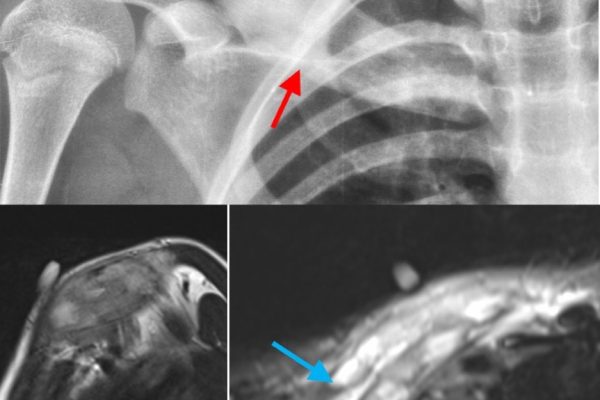A Holistic Approach: Integrative Therapies in Renal Cancer Treatment
Introduction:
Renal cancer, a formidable adversary affecting millions worldwide, has caused a shift in healing plans. Conventional methods like surgery, chemotheraphy, and targeted treatments remain as foundations in today’s medicine against kidney cancer, but more focus is being put on whole-body methods. These integrative treatments blend traditional medical care with extra practices, offering a comprehensive and more patient-focused approach.
Accepted Treatments in Modern Medicine:
Surgery: A Frontline Defense
Surgery stands as the primary and often frontline intervention in renal cancer treatment. Nephrectomy, the removal of the affected kidney, has undergone significant advancements in recent years. The progress comes in the form of less invasive techniques, such as operations using tiny cameras (laparoscopic) or even robotic surgery. By lowering post-operative pain and complications, these approaches not only enhance patient outcomes but also significantly shorten recovery durations. Compared to regular open surgeries, patients who have these minimally invasive procedures often have shorter hospital stays, a quicker return to daily activities, and an overall improved quality of life.
Chemotherapy and Targeted Therapies: Precision in Action
While chemotherapy is not the primary approach for renal cancer, it is strategically employed in specific cases. Unlike its more widespread use in other cancers, chemotherapy for renal cancer aims for precision. Targeted therapies, a more nuanced and personalized approach, have become a beacon of hope. These therapies zero in on specific molecules or pathways involved in the growth and spread of cancer cells. By doing so, targeted therapies exhibit promising results in slowing the progression of advanced renal cancer while minimizing the collateral damage to healthy cells. This precision medicine approach is emblematic of the evolving landscape of cancer treatments, where therapies are tailored to the unique genetic makeup of each patient’s tumour.
Immunotherapy: Unleashing the Body’s Defenses
Renal cancer treatment has entered a fresh era thanks to immunotherapy, an innovative approach that uses the body’s own immune system to fight the disease. Normally, our body is pretty good at finding and destroying these cells. Immunotherapy drugs, such as checkpoint inhibitors, work by releasing the brakes on the immune system, allowing it to unleash a robust attack on cancer cells. The overall quality of life for patients has been observed to significantly improve, and better survival rates demonstrate the exceptional success of immunotherapy in the treatment of renal cancer. Researchers are working hard, diving deep to understand how our immune response works. All in all, immunotherapy is shaping up to be a big game player in beating kidney cancer.
Holistic Treatment Approaches:
RephraseNutritional Support:
The holistic approach emphasizes the pivotal role of nutrition in cancer treatment. A well-balanced diet, rich in fruits, veggies, and whole grains helps the immune system. This, in turn, greatly aids the health of those with kidney cancer.
Mind-Body Practices:
Along with tackling the bodily signs, handling cancer also requires dealing with the psychological effects. Practices that unify the mind and body like meditation, yoga, and other relaxation methods, are key in soothing stress, anxiety, and depression that people with cancer often encounter.
Acupuncture and Massage Therapy:
Holistic treatments commonly use strategies like acupuncture and massage to ease discomfort and boost overall health. These practices not only enhance the body’s natural healing mechanisms but also provide a sense of relaxation and comfort for renal cancer patients.
Herbal Supplements:
Although they don’t replace traditional treatments, certain herbal supplements could potentially help those with kidney cancer. Caution is advised, and patients should consult with their healthcare team before incorporating any herbal remedies to avoid potential interactions with prescribed medications.
Exercise Programs:
RephraseRecognizing the vital part that exercise plays in maintaining endurance and strength, tailored workout plans designed in collaboration with medical professionals assist patients in managing fatigue, elevating their quality of life, and improving their general physical function while undergoing cancer treatment.
Conclusion:
The fusion of holistic therapies with conventional renal cancer treatments signifies a paradigm shift towards more comprehensive patient care. While modern medicine equips us with indispensable tools, a holistic approach acknowledges the interconnectedness of physical, mental, and emotional well-being.
Patients and healthcare providers are increasingly realizing the value of synergizing the advancements of modern medicine with holistic practices. As we navigate the complexities of renal cancer, this integrated approach has the potential to redefine the landscape of cancer care. It not only enhances treatment outcomes but also places the patient at the center of their healing journey. In the tapestry of renal cancer treatment, the marriage of accepted medical interventions with holistic practices paints a picture of hope and resilience, offering a more profound and empathetic response to the challenges posed by this formidable disease.

